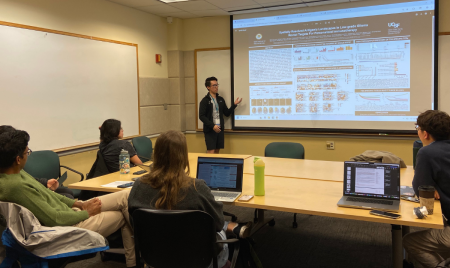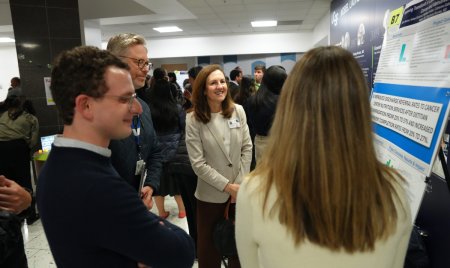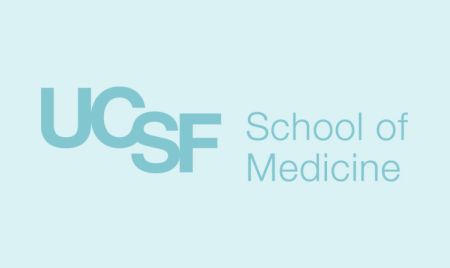What Happens When You Fly From the Coop? Reflections on Life After UCSF

H. Carrie Chen, MD, PhD; photo by Elisabeth Fall
Carrie Chen was my chief resident when I started as a pediatric resident at UCSF in 1998. We both had been UCSF medical students as well. I don’t know when the term “UCSF Lifer” officially kicks in, but I would say we both fit that definition. While I could talk to Carrie about her important and eye-opening research in workplace-based assessments (see her keynote for the AME Celebration of New Members), I was really curious to know, “Is there life after UCSF?”
“It was really scary,” Carrie said. “It was almost an existential crisis. Can I exist outside of UCSF when I had been there for all of my formative professional development? It is exciting… and freeing…and scary.” She described the process of redefining oneself. “It was freeing to think about who I want to be, rather than who I have become because of certain invisible constraints and expectations due to the space one has occupied and carved out over time.” So, rather than taking for granted who she is and having the mantra, “I just am and thus I do,” she now makes decisions more intentionally about what is on her plate and is reflecting more deeply about the role she wants to have at Georgetown.
Carrie emerged as a clinician educator under the leadership of David Irby, PhD when he established UCSF’s institutional reputation and culture in educational excellence. She describes the UCSF environment as exciting with many talented people heading in the same direction. “It’s like being the fish in water who doesn’t see the water when I was at UCSF. And, now at Georgetown…it’s not that there is resistance…but the waters are different. People have not necessarily been thinking the same way as I have been or may not have the same knowledge or skills.” At Georgetown, Carrie has more clarity on the role she has in supporting and educating people and creating a vision for educational excellence. She feels the transition has made her a more thoughtful person who is more deliberate about her choices. In pursuing her vision of building a culture of educational excellence and a deeper bench to support that goal at Georgetown, she is finding the balance of where to push and pull in her new institutional home. “I am not the type of person who wants people to do things because I want them to. I want them to do it because that is where they want to go. I put thought into how I position myself; I want to be a resource, a friend and a support. Not the person with the stick.”
Carrie has also noticed and appreciated the unique institutional culture at Georgetown. Having grown up in public institutions her entire life, she is used to separating church and state. “We just didn’t talk about spirituality and other components that come into play. Sometimes in striving for excellence, the process felt transactional rather than relational.” She feels the Jesuit influence in how people treat each other and the value placed on the relationship. She also has experienced a different type of diversity at Georgetown with a greater diversity of thought. “We train more military physicians than any other institution outside of the Uniformed Services University. We have representation across the political spectrum. One of our graduates was a nun. I have been forced to think about diversity in different ways.” And, while initially perplexed by their West coast transplant’s habit of reusing scrap paper, her colleagues have created a scrap paper bin to use for printing drafts.
For those “lifers” who remain at UCSF, Carrie hopes we will realize “just how rich the environment is for educators and how much there is around us. Don’t’ take it for granted. Find ways to take more advantage of that. Have conversations beyond what has to get done today and more about how one builds culture and leadership perspectives.”
For those who may “fly the coop”? First, the mentors you have will still be there for you. With a laugh, Carrie muses on the many times she has sent emergency emails to Dave Irby, PhD; Helen Loeser, MD, MSc; Patricia O’Sullivan, EdD; Calvin Chou, MD, PhD; Arianne Teherani, PhD; and others. And, perhaps most importantly, “take the opportunity to start fresh,” advises Carrie. “UCSF faculty are attractive to other places because we are known to be innovative. The innovative mindset is the unspoken role that we are expected to bring beyond what is in the new job description. So how will you fulfill that role?”
It is clear that Carrie is bringing innovation along with thoughtful leadership to her new home institution, and I am grateful that she continues to inspire many of us no matter where she is.









